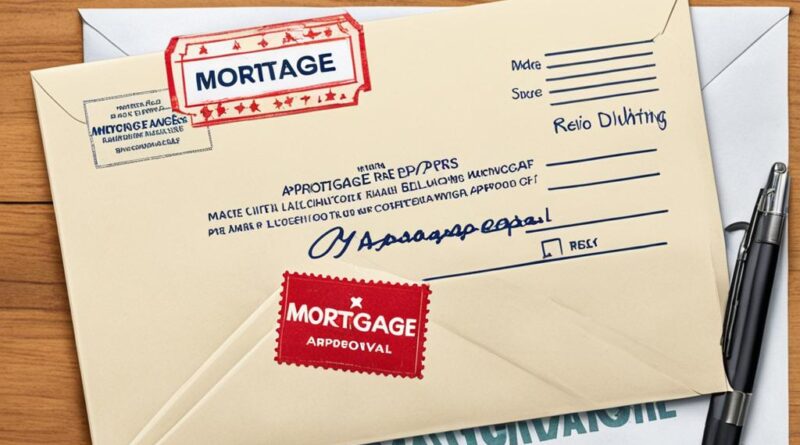Exploring Risks of Fake Mortgage Pre Approval Letters
Fake mortgage pre approval letters can be a hazard in the home-buying journey, exposing individuals to fraudulent pre-approval scams. Understanding the risks associated with these letters is crucial in safeguarding oneself from potential financial and legal trouble.
When aspiring homeowners receive a mortgage pre approval letter, they rely on its validity and accuracy to make informed decisions. Unfortunately, there are instances where scammers create fake pre approval letters to deceive unsuspecting individuals.
These fraudulent letters often appear convincing, with official-looking logos, professional language, and promises of easy loan approval. However, falling for these scams can have dire consequences, including financial losses, damaging credit scores, and even legal implications.
It is important for potential homebuyers to stay informed about the risks associated with fake mortgage pre approval letters. By understanding the common types of mortgage fraud schemes and taking precautions, individuals can protect themselves from becoming victims of these scams.
In this article, we will explore the various risks associated with fake mortgage pre approval letters, including the potential consequences for individuals and financial institutions. We will also provide guidance on how to spot fake pre approval letters, precautions to take, and steps to protect oneself from mortgage pre approval scams.
Key Takeaways:
- Fake mortgage pre approval letters are a significant risk in the home-buying process, as scammers use them to deceive individuals.
- Falling for a fake pre approval letter can lead to financial losses, damaged credit scores, and potential legal trouble.
- Understanding the common types of mortgage fraud schemes can help individuals recognize red flags and protect themselves.
- By being cautious and vigilant, individuals can take precautions to avoid mortgage pre approval scams.
- Working with reputable lenders and seeking professional advice can help mitigate the risks associated with fake pre approval letters.
Common Types of Mortgage Fraud Schemes
Mortgage fraud schemes can manifest in various ways, each with its own deceptive tactics and potential financial implications. It is crucial to familiarize yourself with these common schemes to protect yourself from falling victim to mortgage fraud.
1. Property Flipping
Property flipping involves purchasing a property below its market value and quickly reselling it for a profit. Fraudsters may collaborate with corrupt appraisers to inflate the property’s value, deceiving lenders and buyers.
2. Asset Rental Fraud
Asset rental fraud entails borrowing someone else’s assets, such as bank statements or investment portfolios, to appear more financially qualified for a mortgage. This scheme aims to deceive lenders into approving loans based on false financial standing.
3. Equity Skimming
Equity skimming involves an investor using a “straw buyer” to obtain a mortgage loan. After purchasing the property, the investor rents it out without making any mortgage payments. They profit from the rental income before intentionally allowing the property to go into foreclosure, leaving the lender at a significant loss.
4. Foreclosure Relief Scams
Foreclosure relief scams target vulnerable homeowners at risk of losing their properties. Fraudsters prey on their desperation by offering false promises of saving their homes through schemes that require upfront payments but ultimately provide no relief.
5. False Identity Usage
In this scheme, fraudsters use stolen identities to obtain fraudulent mortgages. By assuming the identity of another individual, they deceive lenders into granting loans based on false information, putting the actual person’s financial well-being at risk.
6. Inflated Appraisals
Inflated appraisals occur when appraisers manipulate property values to maximize profits for themselves or the seller. By inflating the property’s worth, fraudsters can deceive lenders into approving larger mortgage amounts than what the property truly deserves.
By understanding these common mortgage fraud schemes, you can equip yourself with the knowledge needed to identify red flags and protect yourself from potential financial and legal consequences.
Precautions against Fake Pre Approval Letters
Protecting yourself from fake pre approval letters is essential to avoid falling victim to scams in the mortgage industry. By learning how to spot red flags and verifying the legitimacy of lenders, you can safeguard your financial and personal information. Here are some precautions to consider:
1. Pay Attention to Red Flags
When reviewing a pre approval letter, be alert for these warning signs:
- Grammatical errors or spelling mistakes
- Generic templates without personalized details
- Vague terms or unrealistic promises
2. Understand the Difference
It’s crucial to differentiate between mortgage pre qualification and pre approval:
- Pre qualification is an initial assessment based on basic information. It doesn’t involve a thorough credit check or verification.
- Pre approval requires a comprehensive evaluation of your financial situation, creditworthiness, and employment history. It provides a conditional approval for a specific loan amount.
3. Verify the Legitimacy
Before proceeding with any lender, take steps to verify their legitimacy:
- Research the lender’s reputation and history.
- Check for registered licenses and accreditation.
- Seek recommendations from trusted sources.
4. Scrutinize the Details
Thoroughly review the pre approval letter for accuracy:
“It’s important to carefully examine the details provided in the letter. Check if the loan amount, interest rate, and terms match your expectations. If anything seems unclear or inconsistent, seek clarification from the lender before proceeding.”
5. Consult Professionals
If you’re uncertain about the authenticity of a pre approval letter, seek advice from professionals:
- Real estate agents can help verify the credibility of lenders and provide guidance through the home-buying process.
- Mortgage brokers have expertise in evaluating lenders and can offer insights based on their industry knowledge.
- Attorneys specializing in real estate can offer legal advice and review documents for potential scams.
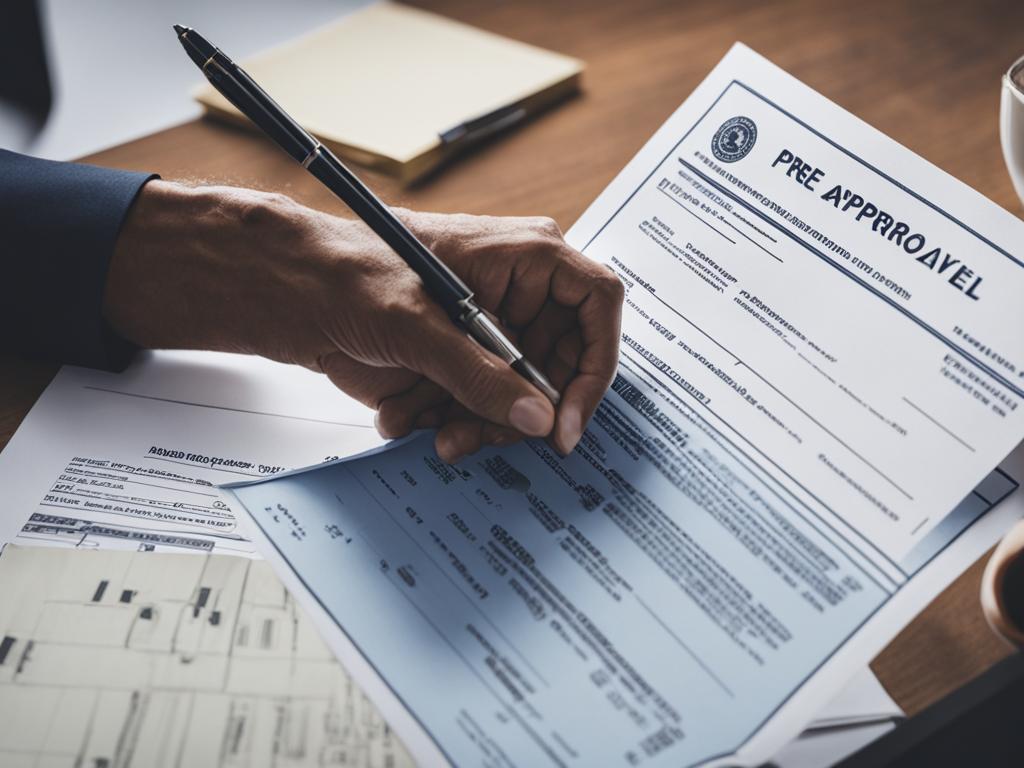
By taking these precautions, you can minimize the risks associated with fake pre approval letters and make informed decisions when pursuing a mortgage loan.
Understanding the Mortgage Pre Approval Process
When it comes to buying a home, understanding the mortgage pre approval process is essential. This step enables potential homebuyers to determine their eligibility for a home loan and estimate the loan amount they can secure. Let’s delve into the details of this crucial process.
Before issuing a pre approval letter, lenders carefully assess an individual’s financial situation, credit history, and employment status. This evaluation helps determine the borrower’s creditworthiness and ability to repay the loan. The pre approval letter provides a conditional approval for a specific loan amount, empowering homebuyers to make informed decisions about their budget and home search.
The mortgage pre approval process involves a thorough review of various documents, which serve as requirements for lenders to assess the applicant’s financial standing. Some key requirements include:
- Income Verification: Lenders typically request recent pay stubs, W-2 forms, or tax returns to verify the borrower’s income and stability.
- Bank Statements: Providing several months of bank statements allows lenders to evaluate the applicant’s financial habits and savings.
- Credit Reports: Lenders pull credit reports to analyze the borrower’s credit history, including their payment history, outstanding debts, and credit utilization.
- Employment Verification: Verification of employment is necessary to confirm the borrower’s steady income and job stability.
The Importance of Mortgage Pre Qualification vs Pre Approval
It’s crucial to understand the difference between mortgage pre qualification and pre approval. While pre qualification provides an estimate of the loan amount a borrower may be eligible for based on self-reported information, pre approval is a more rigorous process that involves a thorough analysis of financial documents.
Pre qualification is the first step in the homebuying process and can be completed quickly. Conversely, pre approval requires a more detailed evaluation and provides a more accurate estimate of a borrower’s purchasing power. As such, pre approval is highly recommended for serious homebuyers looking to make competitive offers and close deals swiftly.
Here’s a simplified breakdown of the key differences between mortgage pre qualification and pre approval:
| Mortgage Pre Qualification | Mortgage Pre Approval |
|---|---|
| Based on self-reported information | Based on thorough evaluation of financial documents |
| Provides an estimate of loan amount | Provides a conditional approval for a specific loan amount |
| Quick and easy process | Time-consuming process |
Understanding the mortgage pre approval process is essential for aspiring homebuyers. By gathering the necessary documentation and obtaining a pre approval letter, individuals can approach the homebuying journey with confidence and a clear understanding of their purchasing power.
The Dangers of Fake Mortgage Approval Documents
Fake mortgage approval documents can have severe consequences, posing risks to both individuals and financial institutions involved. When individuals resort to using fake documents, they expose themselves to potential legal repercussions, including mortgage fraud charges.
Moreover, relying on fraudulent approval documents can result in significant financial strain, particularly if individuals find themselves unable to afford the mortgage payments they committed to based on the fake approval. This can lead to foreclosure, damaging credit scores and future prospects.
Financial institutions are not immune to the dangers of fake mortgage approval documents either. When lenders unknowingly approve loans based on counterfeit documentation, they can suffer substantial financial losses. These losses occur when borrowers default on fraudulent loans, resulting in decreased revenue for financial institutions.
Using fake mortgage approval documents is not only illegal but also unethical. It is crucial for individuals and financial institutions to prioritize transparency and honesty throughout the mortgage application process to maintain the integrity of the industry.
To understand the scale of potential damage caused by fake mortgage approval documents, consider the following example:
| Impact | Individuals | Financial Institutions |
|---|---|---|
| Legal Consequences | Exposure to mortgage fraud charges | Involvement in fraudulent lending practices |
| Financial Strain | Difficulty in affording mortgage payments | Loan defaults and decreased revenue |
| Long-term Implications | Damage to credit scores, hindering future financial endeavors | Reputation damage and potential legal disputes |
Preventing the use of fake mortgage approval documents is essential to maintain the integrity and stability of the housing market. It is imperative for individuals to recognize the risks involved and prioritize honest and legitimate practices when applying for a mortgage.
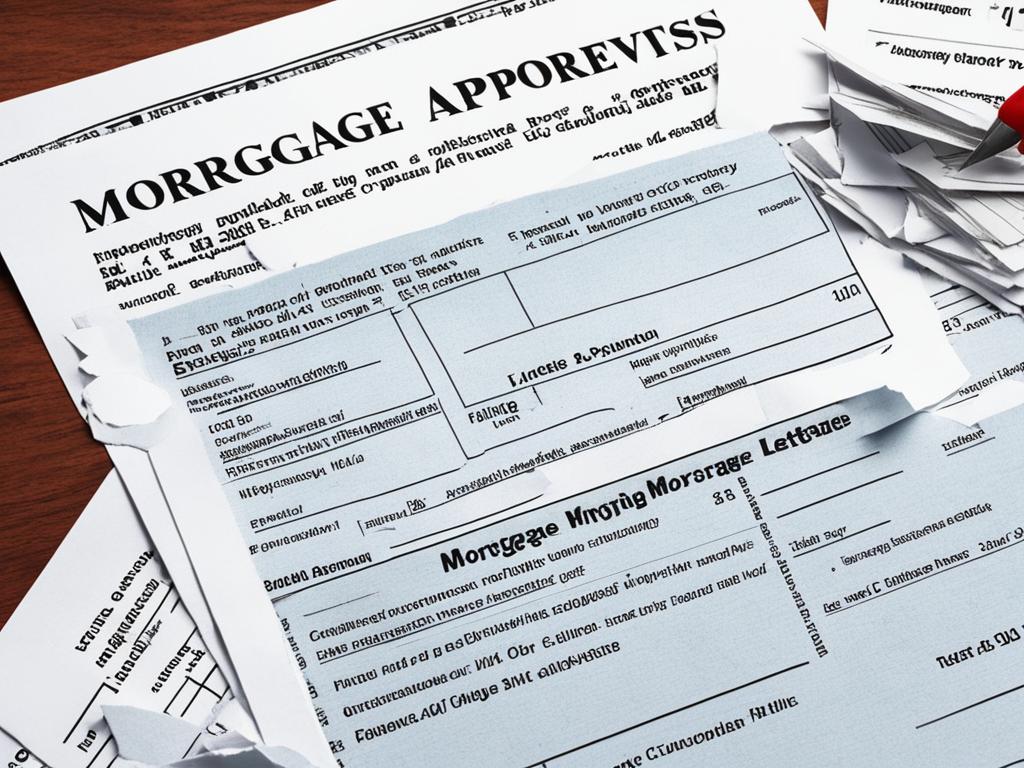
If you come across a situation involving fake mortgage approval documents or suspect fraudulent activity, it is crucial to report it to the appropriate authorities. Reporting such incidents helps in the investigation and prevention of mortgage fraud.
Spotting Fake Mortgage Pre Approval Letters
When it comes to mortgage pre approval letters, being able to identify fakes is crucial. By knowing what to look for, you can protect yourself from falling victim to scams. Here are some key tips to help you spot a fake pre approval letter:
- Check for inconsistencies: Pay close attention to the document and look for any inconsistencies such as missing or incorrect information. Genuine pre approval letters are thorough and accurate.
- Review the tone and language: Professional pre approval letters are typically detailed and personalized. If you notice generic or vague language, it could be a sign of a fake letter.
- Verify lender’s contact information: Use reputable sources to verify the lender’s contact information. Look for official website listings, contact numbers, and email addresses that match the lender’s details.
- Compare with a legitimate template: If you are unsure about the authenticity of a pre approval letter, compare it to a legitimate mortgage pre approval letter template. Look for differences in formatting, structure, and content.
By following these steps, you can increase your chances of spotting a fake pre approval letter and avoid falling into the traps of mortgage pre approval scams.
“Being able to identify the red flags in a pre approval letter is crucial in protecting yourself from fraudulent activities and potential financial loss.”
| Red Flags | Indicators of a Fake Pre Approval Letter |
|---|---|
| Inconsistent information | Missing or incorrect details like loan amount, interest rate, or property address. |
| Generic language | Generic terms and lack of personalized information. |
| Unverifiable contact information | No matching contact details on official websites or directories. |
| Formatting discrepancies | Differences in font, layout, or structure compared to legitimate templates. |
Protecting Yourself from Mortgage Pre Approval Scams
To protect yourself from mortgage pre approval scams, it is essential to be cautious and skeptical. When navigating the home loan process, it’s important to research the lender and verify their credentials before sharing any personal or financial information. Take the following precautions to avoid falling victim to a pre approval letter scam:
- Contact the lender directly: Before accepting any pre approval letter, contact the lender directly using a verified contact number or email. Confirm the validity of the letter and inquire about any terms or conditions stated.
- Verify lender credentials: Conduct thorough research to ensure the lender is reputable and licensed. Search for online reviews, check their credentials with trusted sources such as the Better Business Bureau, and seek recommendations from trusted friends, family, or real estate professionals.
- Avoid upfront fees or charges: Legitimate lenders typically do not require any upfront fees or charges for the pre approval process. Be cautious of any requests for payment before the loan closing process.
Be Vigilant and Informed
Being vigilant is crucial in identifying red flags and avoiding pre approval letter scams. Keep these additional tips in mind:
- Double-check the details: Pay close attention to the terms and conditions stated in the pre approval letter. Look out for any inconsistencies or suspicious wording.
- Seek professional advice: If you’re unsure about the authenticity of a pre approval letter, consult with a real estate agent, mortgage broker, or attorney experienced in the home-buying process. They can provide guidance and help identify any potential scams.
Image: Spotting Fake Pre Approval Letters

Working with Reputable Mortgage Lenders
To minimize the risk of receiving a fake pre approval letter for a home loan, it is crucial to work with reputable mortgage lenders. By conducting thorough research and ensuring their legitimacy and reputation in the industry, you can protect yourself from potential scams and fraudulent activities.
Here are some steps to follow when choosing a reputable mortgage lender:
- Check customer reviews, ratings, and complaints to gauge the reliability of the lenders.
- Seek recommendations from trusted sources, such as friends, family, or real estate professionals who have had positive experiences with specific lenders.
Working with a reputable mortgage lender not only reduces the risk of receiving a fake pre approval letter but also ensures a smooth and transparent home loan process. Keep in mind that reputable lenders prioritize their clients’ best interests and adhere to ethical practices.
| Benefits of Working with Reputable Mortgage Lenders |
|---|
| 1. Access to competitive interest rates and loan options |
| 2. Transparent communication and clear loan terms |
| 3. Efficient and timely processing of loan applications |
| 4. Knowledgeable and experienced loan officers |
| 5. Excellent customer service and support throughout the loan process |
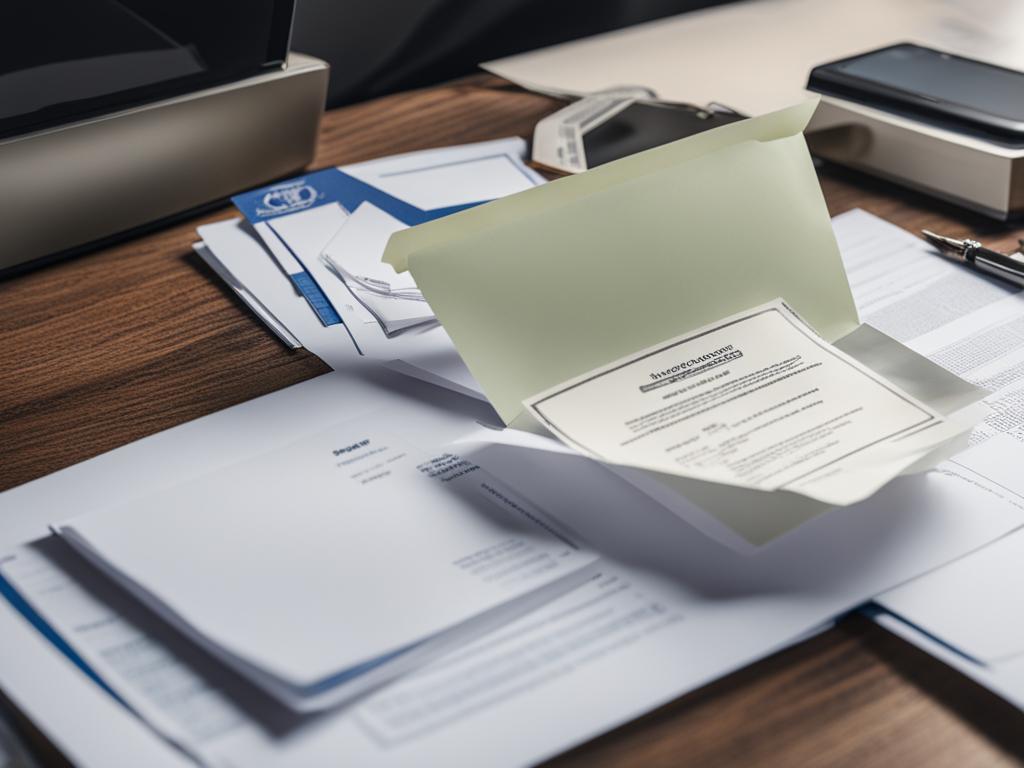
Seeking Professional Advice
When you have doubts about the authenticity of a mortgage pre approval letter, it is crucial to seek guidance from professionals in the field. Real estate agents, mortgage brokers, or attorneys experienced in the home-buying process can provide valuable insights and help you identify any red flags. These experts possess extensive knowledge of the industry and can assist you in verifying the legitimacy of the lender and the pre approval letter.
Discuss your concerns with a trusted real estate agent who can guide you through the process and offer support in identifying potential scams. Mortgage brokers specialize in connecting borrowers with suitable lenders, and their expertise can be invaluable in recognizing fraudulent pre approval letters. Attorneys familiar with real estate law can provide legal advice, ensuring that your interests are protected throughout the home-buying journey.
By consulting with professionals during your pursuit of a mortgage pre approval, you can gain a deeper understanding of the process and effectively navigate potential challenges. Remember, it is always better to err on the side of caution and seek reliable advice when in doubt.
“Seeking professional guidance during the mortgage pre approval process can help you avoid potential scams and ensure a smooth path towards home ownership.”
Don’t hesitate to reach out to experts in the industry when you need assistance. They can provide the knowledge and support necessary to make informed decisions and safeguard your financial well-being.
Key Questions to Ask Professionals
| Profession | Key Questions |
|---|---|
| Real Estate Agent |
|
| Mortgage Broker |
|
| Attorney |
|
By asking these key questions, you can gain valuable insights and information from professionals, empowering you to spot fake pre approval letters and make well-informed decisions.
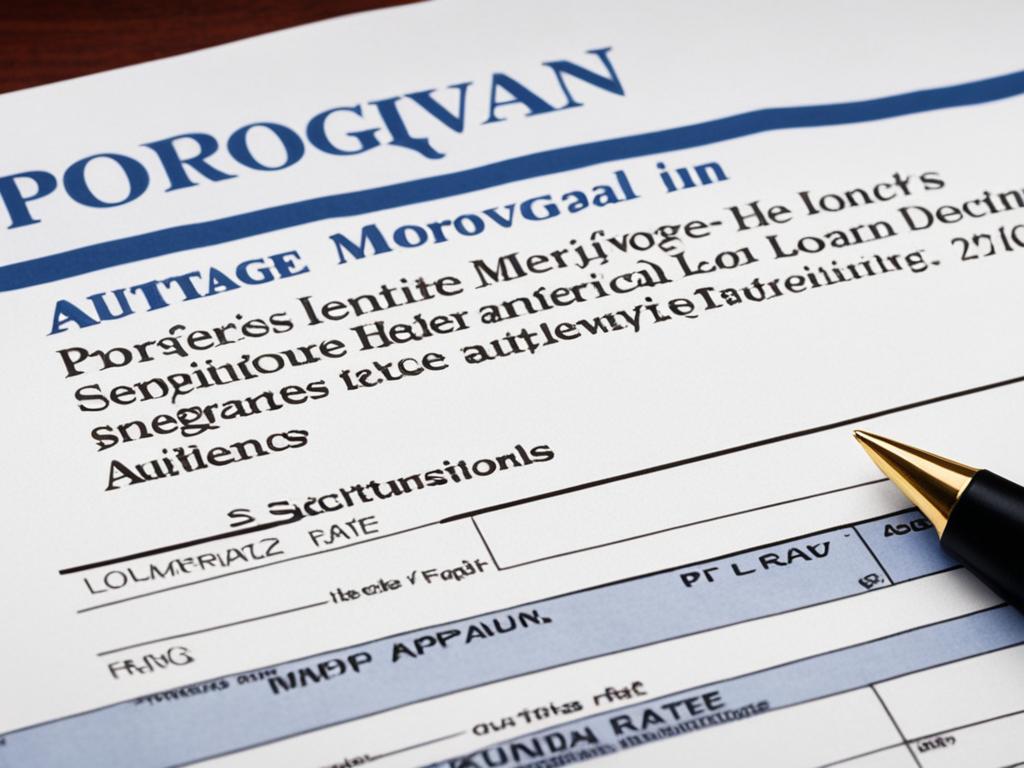
Reporting Fraudulent Mortgage Pre Approval Letters
If you encounter a fake mortgage pre approval letter or suspect fraudulent activity, it is crucial to report it to the appropriate authorities. Protect yourself and others from falling victim to fake pre approval letters by taking action against these scams. Here’s what you can do:
- Contact your local law enforcement agency: Reach out to your local police department and report the fake pre approval letter. Provide them with all the details and evidence you have, including any correspondence or documentation.
- State Attorney General’s office: Submit a complaint to your State Attorney General’s office. They have the jurisdiction to investigate and take action against fraudulent practices in your area.
- Consumer Financial Protection Bureau (CFPB): File a complaint with the CFPB, an agency dedicated to protecting consumers in the financial marketplace. Their team will review your complaint and take appropriate measures to address the fraudulent activity.
By reporting fake pre approval letters, you play a crucial role in helping authorities identify and apprehend those responsible. Remember to provide detailed information, such as the lender’s name, contact information, and any suspicious details in the letter.
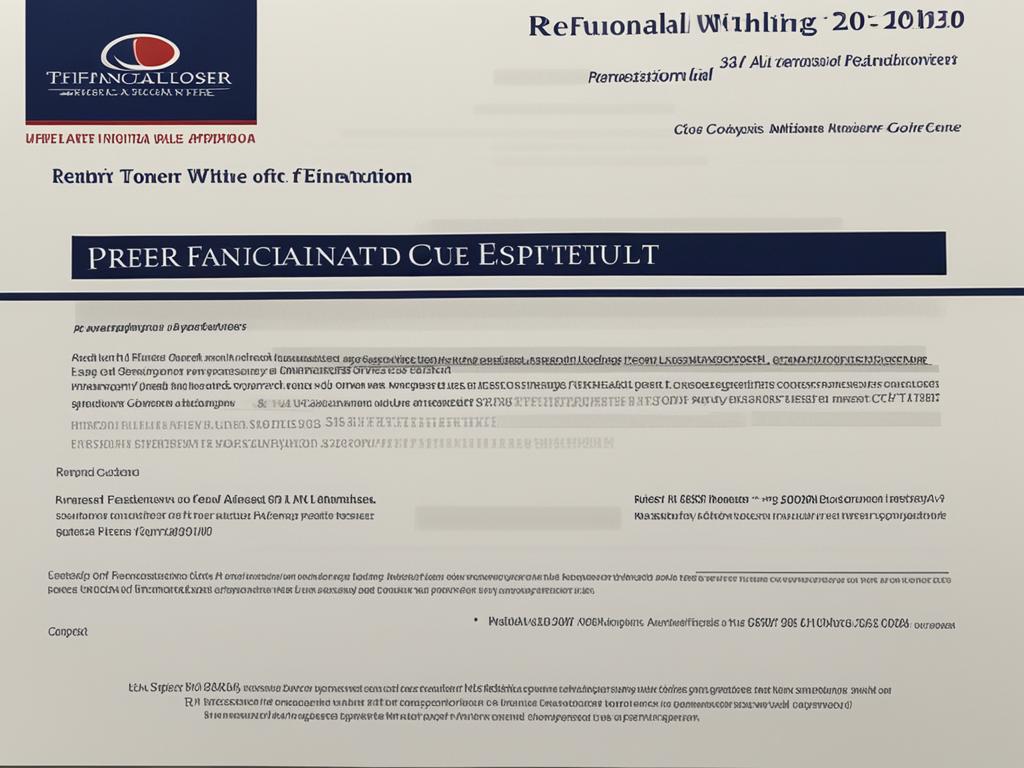
Conclusion
Fake mortgage pre approval letters can pose significant risks to individuals seeking home loans. Understanding the types of mortgage fraud schemes and being able to spot red flags in pre approval letters is crucial in protecting oneself from falling victim to scams. By working with reputable lenders and staying vigilant throughout the pre approval process, individuals can increase their chances of obtaining a legitimate mortgage pre approval letter.
During the mortgage pre approval process, it is important to verify the information provided and seek professional advice when needed. Real estate agents, mortgage brokers, or attorneys can offer valuable guidance in identifying any suspicious activity and ensuring the authenticity of the lender and pre approval letter.
Furthermore, reporting any fraudulent activities to the appropriate authorities, such as local law enforcement agencies, state attorney general’s offices, or the Consumer Financial Protection Bureau, can help prevent further fraudulent activities and contribute to the prosecution of mortgage fraud perpetrators. By taking these precautions and remaining vigilant, individuals can safeguard themselves against the dangers of fake mortgage pre approval letters.
FAQ
What are the risks associated with fake mortgage pre approval letters?
Fake mortgage pre approval letters can expose individuals to fraudulent pre-approval scams, resulting in potential financial and legal trouble.
What are the common types of mortgage fraud schemes?
Common types of mortgage fraud schemes include property flipping, asset rental fraud, equity skimming, foreclosure relief scams, false identity usage, and inflated appraisals.
How can I protect myself against fake pre approval letters?
To protect yourself against fake pre approval letters, look out for red flags, such as grammatical errors and generic templates. Understand the difference between pre qualification and pre approval, and verify the legitimacy of the lender and the details stated in the pre approval letter.
What is the mortgage pre approval process?
The mortgage pre approval process involves evaluating an individual’s financial situation, credit history, and employment status to determine their eligibility for a home loan. Pre approval letters are issued based on this evaluation, providing a conditional approval for a specific loan amount. Lenders require certain documentation, such as income verification, bank statements, and credit reports, to assess an applicant’s creditworthiness.
What are the dangers of using fake mortgage approval documents?
Using fake mortgage approval documents can result in legal repercussions, such as mortgage fraud charges. It may also lead to financial strain if the individual is unable to afford the mortgage payments. Financial institutions can suffer significant losses if they unknowingly approve loans based on fake documents.
How can I spot a fake mortgage pre approval letter?
To spot a fake mortgage pre approval letter, look for inconsistencies in the document, such as missing or incorrect information. Pay attention to the tone and language used, and verify the lender’s contact information from reputable sources. Compare the letter to a legitimate mortgage pre approval letter template to identify any discrepancies.
How can I protect myself from mortgage pre approval scams?
To protect yourself from mortgage pre approval scams, be cautious and skeptical. Research the lender, verify their credentials, and seek recommendations from trusted sources. Contact the lender directly to confirm the validity of the pre approval letter and avoid paying fees upfront.
How can I work with reputable mortgage lenders?
To work with reputable mortgage lenders, conduct thorough research to ensure their legitimacy and reputation. Check customer reviews, ratings, and complaints. Seek recommendations from friends, family, or real estate professionals with positive experiences.
When should I seek professional advice?
Seek professional advice from real estate agents, mortgage brokers, or attorneys experienced in the home-buying process when in doubt about the authenticity of a mortgage pre approval letter. They can help identify any red flags and verify the legitimacy of the lender and the pre approval letter.
What should I do if I encounter a fake mortgage pre approval letter?
If you encounter a fake mortgage pre approval letter or suspect fraudulent activity, report it to the appropriate authorities. Contact your local law enforcement agency, state attorney general’s office, or the Consumer Financial Protection Bureau to file a complaint with detailed information and supporting evidence.

